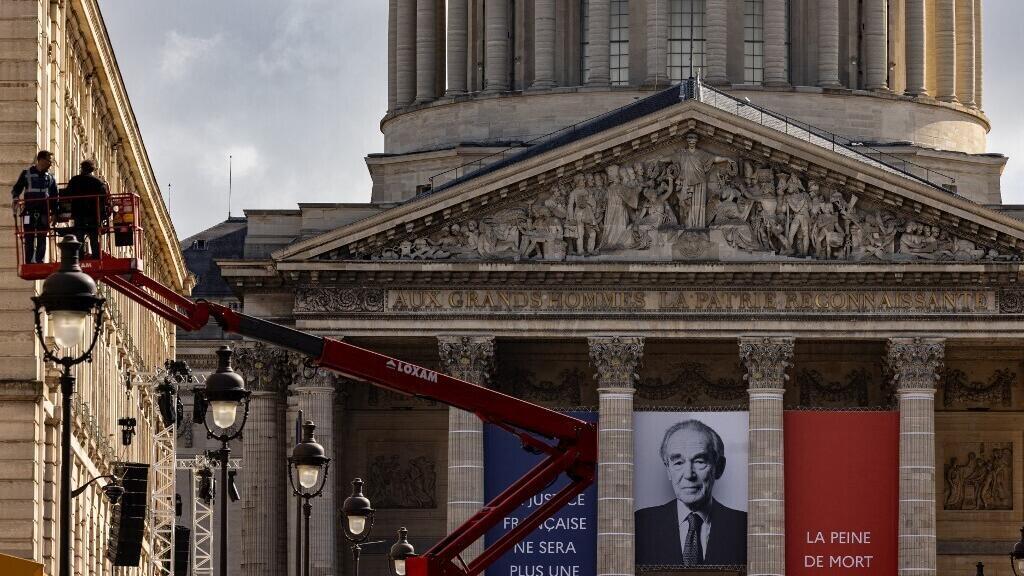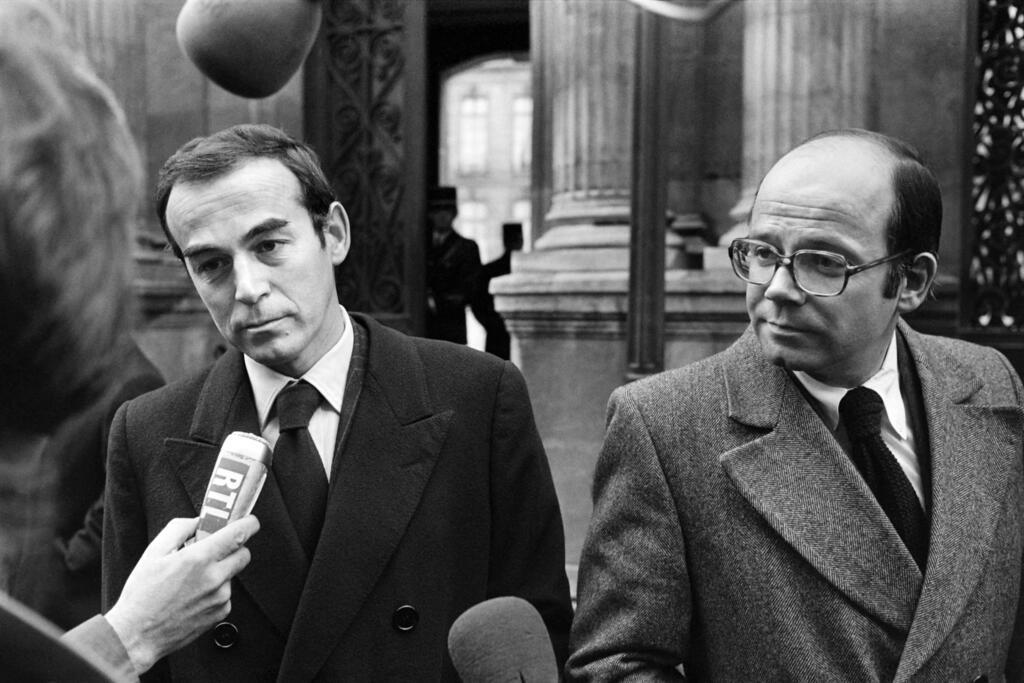
Robert Badinter, the lawyer and former justice minister who led France to end the death penalty, will be inducted into the Panthéon in Paris on Thursday – 44 years to the day after the abolition law took effect.
President Emmanuel Macron will preside over the tribute from 6.30pm local time as Badinter’s coffin travels up rue Soufflot to the neoclassical mausoleum overlooking Paris’s Latin Quarter.
The date was chosen because 9 October, 1981 marked the promulgation of the law ending capital punishment in France.
“Your name will be inscribed alongside those who have done so much for human progress and for France, and who are waiting for you to join them,” Macron said at a national tribute held in February at Place Vendôme in Paris.
The president called Badinter “a soul that cried out, a force that lived and snatched life from the hands of death" adding that "for having made justice more humane, humanity more just, he was, for five years, the most attacked minister in France”.
Badinter embodied the rule of law and the ideals of the Declaration of Human Rights, the Élysée added as it announced his entry into the Panthéon.
Badinter also spearheaded the decriminalised homosexuality, worked to improve prison conditions and helped bring Nazi war criminal Klaus Barbie – the former Gestapo chief known as the “butcher of Lyon” – to trial.
He later led the Constitutional Council and spent decades urging a worldwide ban on executions.
Robert Badinter, French minister who ended the guillotine, dies at 95
Beliefs shaped by injustice
Badinter often said that while he had long opposed the death penalty, it was injustice in court that turned this belief into a mission.
He defended Roger Bontems, a prisoner involved in a hostage-taking in which another man carried out the killings. Although the jury found Bontems had killed no one, he was still sent to the guillotine in 1972.
“I saw, in the name of justice, a man cut in pieces – because that is what the guillotine really means – without ever having killed anyone,” Badinter told RFI in 2005. “There was no blood on his hands. I could not accept this idea of justice. Justice cannot kill. From that moment on I became an activist.”
Five years later, he helped spare Patrick Henry, convicted of murdering a seven-year-old boy, from the death penalty, turning the trial into an attack on capital punishment.
“We entered the court by the front door and once the verdict had been read and the accused’s head was safe, we often had to leave by a hidden stairway,” Badinter said. He received death threats, yet he saved six men from execution.
The early years after abolition were fraught. A few populist politicians carried on calls for restoring executions, even though France is bound by European treaties that ban the death penalty.
“People resented, when there was a horrid crime, that the murderer would not be sent to the guillotine,” Badinter told RFI.

Fighting to end death penalty worldwide 40 years after its abolition in France
Musical tribute
Thursday’s ceremony will trace three defining chapters of Badinter’s life: younger years scarred by anti-Semitism and his father’s wartime deportation, his lifelong commitment to the French Republic, and finally the battle to abolish the death penalty that came to define his legacy.
Musical interludes will feature composers he loved, including Schubert. Singer Julien Clerc will perform a new version of his 1980 anti-death penalty song L’assassin assassiné ("The Murderer Murdered"), written after he saw Badinter save a condemned man from the guillotine.
Actor Guillaume Gallienne will read a passage from Victor Hugo’s Choses vues (Things Seen), chosen by Badinter’s widow Elisabeth.
The excerpt ends: “Happy if one day it could be said of him: ‘When he departed, he took the death penalty away with him'.”
Elisabeth Badinter has already placed Hugo’s book in her husband’s coffin, according to French newspaper La Tribune Dimanche.
The ceremony will also include readings from Badinter’s own speeches – among them his 1981 address to parliament in which he denounced “stealthy executions at dawn” as France’s “collective shame” and said: “If fear of death stopped men in their tracks, we would have no great soldiers or sporting figures."
The evening will close with video projections on the building’s facade, described by the Elysée as “a truly exceptional graphic work”.
France pays tribute to Badinter, minister who won fight to end death penalty
Legacy and politics
Badinter described himself as “a left-wing republican, a social democrat”. He opposed the far right all his life, but in later years also criticised the radical left for what he saw as alliances with extremism.
In keeping with the family’s wishes, leaders of the far-right National Rally and far-left France Unbowed (LFI) parties have not been invited to Thursday’s ceremony.
Yet LFI leader Jean-Luc Mélenchon paid tribute to Badinter in the French weekly L’Obs, writing that he “was capable in a few words of setting an intellectual horizon, an idea, at the very heart of a moment”.
His panthéonisation is the fifth approved by Macron since 2017 – after Simone Veil in 2018, Maurice Genevoix in 2020, Josephine Baker in 2021 and resistance fighters Missak and Mélinée Manouchian in 2024. The historian and resistance figure Marc Bloch is scheduled to enter in June 2026.
Armenian Resistance hero Manouchian joins France's Panthéon luminaries
Global influence
On Friday, Badinter will be placed in caveau VII alongside Condorcet, the Enlightenment philosopher and early advocate of the abolition of slavery, whose ideals Badinter admired; Abbé Grégoire, a revolutionary priest who defended the rights of Jews and free black people, and Gaspard Monge, the mathematician and scientist who helped found France’s polytechnic schools.
Before the Panthéon ceremony, the Constitutional Council – which Badinter led from 1986 to 1995 – will hold a public vigil around the coffin at the Palais Royal, from Wednesday afternoon through Thursday.
Crowds are expected on rue Soufflot and the Panthéon square. Official guests will include government members, former prime ministers, parliamentary leaders and pupils from schools named in honour of Badinter.
A towering French figure, Badinter's fight against capital punishment resonated worldwide, and he campaigned against executions in countries including China and the United States.
In 2005 he told RFI: “The trend is towards world abolition and it will come, I am sure of that. I’m afraid I will not see it, but it will come.”







